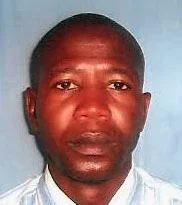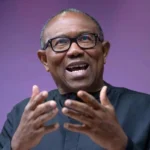Afolabi Gambari
Contents
As the World Children’s Day 2025, billed for October 22- 23, approaches, perhaps nothing could have been more auspicious than the latest UNICEF Regional Workshop on Ethical Reporting of Children held in Port Harcourt on October 22 and 22. The event, which had over 50 journalists, editors and correspondents drawn from various print and electronic media attending, also drew experts in academia and UNICEF with the aim of advocating child protection as a fulcrum for guaranteeing a useful future for the Nigerian child. The focus of the workshop was unmistakable: the Nigerian child must be given adequate life as a right. Participants were unanimous that although there have been several interventions by government and non-profit organisations in recent years for particularly vulnerable children in Nigeria, the time has come for a paradigm shift in the reporting of activities around the children. The focus shifted to the ethical presentation of the activities around the children, due essentially to their vulnerability. Mr Toye Falayi, Assistant Director, Child Rights Information Bureau, at the Federal Ministry of Information and National Orientation, who represented the Information and National Orientation Minister, Alhaji Muhammed Idris Malagi, on the first day, stressed the need for the media to adopt the principle of ethical reporting on children. UNICEF’s Chief Field Officer in Port Harcourt, Dr. Anslem Otobo Audu, also gave a keynote address on “Why Ethical Reporting of Children Matters in Nigeria”, while Dr. Geoffrey Njoku, Communication, Advocacy and Development Consultant for UNICEF, gave an overview of the United Nations Convention on the Rights of the Child, as Ms Susan Akila, Communication Specialist, UNICEF Nigeria, also spoke extensively on the subject while tasking the media to ensure strict adherence to the ethical reporting. On both days, Dr. Jide Johnson, Director of Special Programme at the Nigerian Institute of Journalism, Lagos, as well as veteran journalist and media consultant, Dr. Lekan Sote, and Prof Charles Obot of the Department of Film and Multimedia Studies, University of Uyo, literally returned the journalists at the workshop to the classroom, discussing on “Ethical dilemmas: abuse, crime, conference”, : When to report vs when not to report”, “The media and Child’s rights”, “Drafting newsroom guidelines on child” and “Rewriting harmful headlines into ethical alternatives”, among others. Dr Njoku also counselled that where difficulties arise for journalists in interacting with targeted children, responsible and reliable intermediaries can be sought within the community to ease the work. The lectures aimed at tasking the media to rededicate themselves to embracing empathy in their work on children while also ensuring accuracy in their reports so that the already victimised children are not re-victimised and the already traumatised are not re-traumatised. Of particular interest are the children affected by the scourge of insurgency in the north-east of Nigeria, whose lives require total rebuilding to get them reintegrated into society. Above all, the reports must always be in the best interest of the children. Indications that this year’s World Children’s Day, with the theme “my day, my rights” would be a departure from the past received a huge boost when the participating media representatives at the workshop made a joint declaration to work for the protection of the Nigerian child and give the child a voice. It was an indication that the focus would henceforth be on the child soldiers engaged by bandits and insurgents, out-of-school children, the violated children, the malnourished children and sundry others whose future constitutes uncertainty for themselves and the country. However, the media would still have to perform the vital task of focusing on the Child Rights Act that was signed into law in Nigeria in 2003, which has now been adopted by all 36 states in the country. On paper, the adoption by the states is momentous. But it would still be incumbent on the media to engage and re-engage with various state governments to ensure they implement the law to the letter by expunging the cultural and religious clogs that could hamper the implementation, such as the practice of child marriage that still exists in some states, particularly in the rural and poor areas of the country. Also, the media could put pressure on states like Oyo, Yobe, Borno, Rivers, Kogi and Ekiti that are yet to officially gazette the child rights law to do so in the interest of the children in the knowledge that the law is especially intended to protect children from exploitation, neglect, abuse, as well as ensure their right to needs that include education, health and general well-being. The media would also be expected to create and sustain awareness of the child rights Act among the leaders across Nigeria are yet to be fully aware of its provisions while also helping to highlight the challenge arising from the lack of commitment and capacity by the judiciary in Nigeria to properly investigate various cases of child rights abuse. The United Nations General Assembly adopted the Declaration of the Rights of the Child on November 20, 1959. On the same day in 1989, the General Assembly adopted the Convention on the Rights of the Child, which is the most universally accepted human rights treaty in history. The Declaration on the Rights of the Child states that children have the right to food, healthcare, education, and protection from exploitation, making it the duty of the international community to prioritise children’s rights. All signatories to the declaration are bound by international law to ensure its implementation.
As the World Children’s Day 2025, billed for October 22- 23, approaches, perhaps nothing could have been more auspicious than the latest UNICEF Regional Workshop on Ethical Reporting of Children held in Port Harcourt on October 22 and 22. The event, which had over 50 journalists, editors and correspondents drawn from various print and electronic media attending, also drew experts in academia and UNICEF with the aim of advocating child protection as a fulcrum for guaranteeing a useful future for the Nigerian child. The focus of the workshop was unmistakable: the Nigerian child must be given adequate life as a right.
Participants were unanimous that although there have been several interventions by government and non-profit organisations in recent years for particularly vulnerable children in Nigeria, the time has come for a paradigm shift in the reporting of activities around the children. The focus shifted to the ethical presentation of the activities around the children, due essentially to their vulnerability.
Mr Toye Falayi, Assistant Director, Child Rights Information Bureau, at the Federal Ministry of Information and National Orientation, who represented the Information and National Orientation Minister, Alhaji Muhammed Idris Malagi, on the first day, stressed the need for the media to adopt the principle of ethical reporting on children. UNICEF’s Chief Field Officer in Port Harcourt, Dr. Anslem Otobo Audu, also gave a keynote address on “Why Ethical Reporting of Children Matters in Nigeria”, while Dr. Geoffrey Njoku, Communication, Advocacy and Development Consultant for UNICEF, gave an overview of the United Nations Convention on the Rights of the Child, as Ms Susan Akila, Communication Specialist, UNICEF Nigeria, also spoke extensively on the subject while tasking the media to ensure strict adherence to the ethical reporting.
On both days, Dr. Jide Johnson, Director of Special Programme at the Nigerian Institute of Journalism, Lagos, as well as veteran journalist and media consultant, Dr. Lekan Sote, and Prof Charles Obot of the Department of Film and Multimedia Studies, University of Uyo, literally returned the journalists at the workshop to the classroom, discussing on “Ethical dilemmas: abuse, crime, conference”, : When to report vs when not to report”, “The media and Child’s rights”, “Drafting newsroom guidelines on child” and “Rewriting harmful headlines into ethical alternatives”, among others. Dr Njoku also counselled that where difficulties arise for journalists in interacting with targeted children, responsible and reliable intermediaries can be sought within the community to ease the work. The lectures aimed at tasking the media to rededicate themselves to embracing empathy in their work on children while also ensuring accuracy in their reports so that the already victimised children are not re-victimised and the already traumatised are not re-traumatised. Of particular interest are the children affected by the scourge of insurgency in the north-east of Nigeria, whose lives require total rebuilding to get them reintegrated into society. Above all, the reports must always be in the best interest of the children.
Indications that this year’s World Children’s Day, with the theme “my day, my rights” would be a departure from the past received a huge boost when the participating media representatives at the workshop made a joint declaration to work for the protection of the Nigerian child and give the child a voice. It was an indication that the focus would henceforth be on the child soldiers engaged by bandits and insurgents, out-of-school children, the violated children, the malnourished children and sundry others whose future constitutes uncertainty for themselves and the country. However, the media would still have to perform the vital task of focusing on the Child Rights Act that was signed into law in Nigeria in 2003, which has now been adopted by all 36 states in the country. On paper, the adoption by the states is momentous. But it would still be incumbent on the media to engage and re-engage with various state governments to ensure they implement the law to the letter by expunging the cultural and religious clogs that could hamper the implementation, such as the practice of child marriage that still exists in some states, particularly in the rural and poor areas of the country. Also, the media could put pressure on states like Oyo, Yobe, Borno, Rivers, Kogi and Ekiti that are yet to officially gazette the child rights law to do so in the interest of the children in the knowledge that the law is especially intended to protect children from exploitation, neglect, abuse, as well as ensure their right to needs that include education, health and general well-being. The media would also be expected to create and sustain awareness of the child rights Act among the leaders across Nigeria are yet to be fully aware of its provisions while also helping to highlight the challenge arising from the lack of commitment and capacity by the judiciary in Nigeria to properly investigate various cases of child rights abuse.
The United Nations General Assembly adopted the Declaration of the Rights of the Child on November 20, 1959. On the same day in 1989, the General Assembly adopted the Convention on the Rights of the Child, which is the most universally accepted human rights treaty in history. The Declaration on the Rights of the Child states that children have the right to food, healthcare, education, and protection from exploitation, making it the duty of the international community to prioritise children’s rights. All signatories to the declaration are bound by international law to ensure its implementation.







